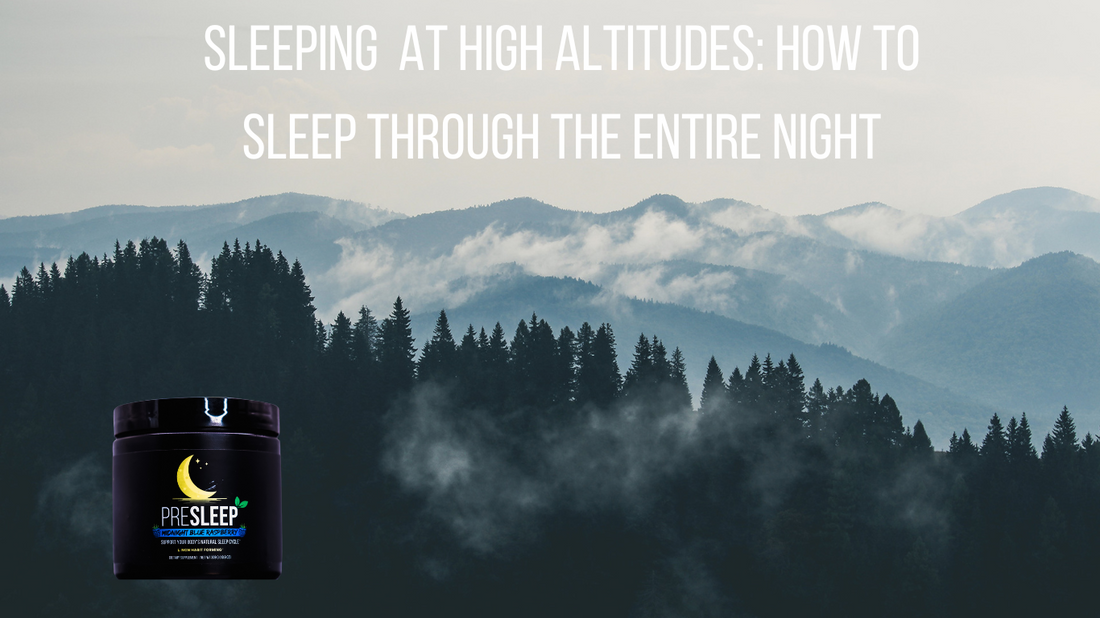Sleeping at high altitudes can cause poor sleep and have you feeling like you never fully fall asleep. Almost as if you have one eye open the entire night.
Yet winter is here. Many folks are flocking to the mountains to shred the powder or enjoy a nice weekend with friends and family.
Anyone who’s ever been to the mountains in Colorado, Utah, or California knows how high altitude can be a struggle just to get a breath without any physical activity.
The high altitude coupled with dry mountain air causes many people to report poor sleep quality in the mountains resulting in increased awakenings, difficulty staying asleep, and less REM sleep.
If you want to catch the first chair lift up to the summit the day after your flight, this isn’t ideal.
Hydration is Key to Acclimate to High Altidude
You need a good night's sleep to perform your best and be locked in mentally. But with an altitude shift it can be challenging.
The most important levers that you can control for a trip to the mountain is hydration.
We all tend to have reduced thirst at elevations of around 14,000 ft, this can lead to a 2-3L deficit causing dehydration. This can make it difficult to chug more water because you don’t have the appetite for it.
Drinking electrolyte beverages like Propel, Gatorade, or (our personal favorite) LMNT. These beverages will help satiate your thirst and keep you hydrated using less water.
However, we believe getting adequate sleep is something within your control as well.
Be Proactive with Your Sleep
Magnesium helps with both hydration and getting proper sleep. In a dissolved state, magnesium binds hydration water tighter than calcium, potassium, and sodium.
When supplementing magnesium ,it’s going to help you absorb the water from these drinks even more effectively.
If you’re reading this, you’re probably aware that magnesium glycinate is great for sleep too.
Magnesium glycinate helps with muscle relaxation and increases energy levels upon waking up so you feel refreshed.
The most important ingredient for high altitude climates is zinc. Zinc turns tryptophan into serotonin and then into melatonin. Keep in mind this is natural melatonin and will reduce the amount of wakeups
Your Mountain Sleep Strategy
We already talked about the importance of hydration but this protocol will ensure you dramatically reduce your wakeups and improve your REM sleep:
- Get adequate fluids in using electrolyte beverages
- Eat large salty meal with plenty of carbs at least 3 hours before bed
- Consider using a humidifier
- Refrain from drinking alcohol and using other drugs like marijuana
- Avoid blue light devices such as phones, laptops, and ipads an hour before bed
- Add one scoop of PreSleep to water and sip an hour before bed
Following this protocol without using PreSleep should be enough to get a great night's sleep in the mountains
But, PreSleep’s natural ingredients are designed to relax your body, put your mind at ease, and have you waking up with a jolt of energy to tackle whatever mountain stands before you.
To order PreSleep, click here.
Using PreSleep in the mountains this weekend? Tag us on Instagram, Tiktok, and X, Formerly Twitter.

